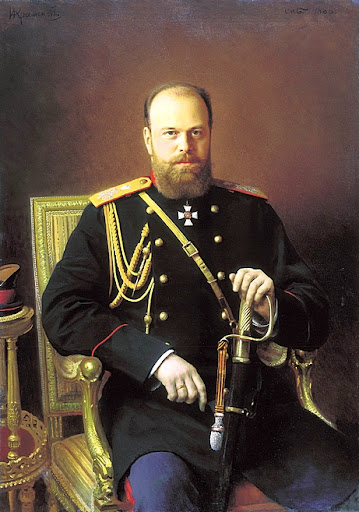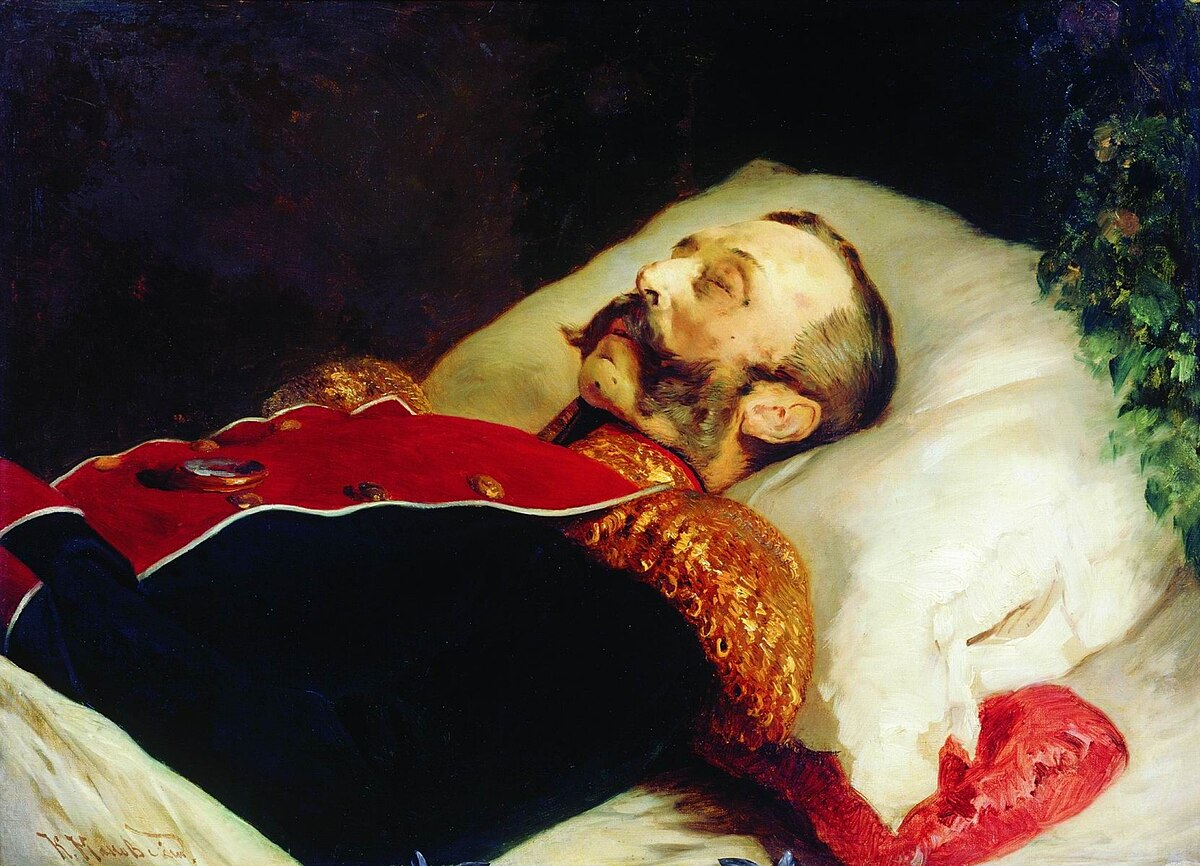Photo AI
Last Updated Sep 26, 2025
Political authority in action Simplified Revision Notes for A-Level Edexcel History
Revision notes with simplified explanations to understand Political authority in action quickly and effectively.
275+ students studying
Political authority in action
📌 Alexander II 1855-1881
The impact of Alexander II's reforms:
- The education, censorship and law reform meant that there was more freedom within Russia to share and distribute radical literature and ideas.
- The legal reforms meant Alexander II had essentially established an independent judiciary where he could no longer as easily prosecute radicals or opposition.
- The distribution of literature meant more people had access and could real radical literature, who would then discuss this literature in groups.
- Students formed study circles where they could discuss radical ideas and the injustices of the Tsarist system. This led to protests and arrests and many students were radicalised and joined the ranks of the revolutionaries.
- Newspapers, books and periodicals did no longer have to be submitted and papers were allowed to discuss government policy. This allowed for the Tsar and his government to be widely criticised in the newspapers.
- Public opinion was able to take shape and the public was becoming more informed.
Alexander II and reaction
In 1866, a former student called Karakazov who belonged to a revolutionary group narrowly missed the Tsar with a pistol shot.
The assassination attempt along with the Polish revolt of 1863 provided proof to the conservatives within the government that the Tsar's reforms had gone too far and they convinced Alexander II to halt progressive reforms.
Liberal ministers lost all influence in government as well as Alexander II's more liberal family members.
Count Peter Shuvalov:
- Amongst the new conservative appointments was Shuvalov, head of the third section.
- Shuvalov vetted appointments to the government to retain conservative influence.
- He tightened up censorship and closed down some periodicals.
- He brought in tighter controls surrounding students and universities since they were becoming the most radicalised in society.
- Shuvalov made use of the military courts to try political cases and to bypass the previous legal reforms implemented by Alexander II.
- Increased rule by decree.
Minister of Education:
- Count Tolstoy was a firm believer that universities and students were the reason for the increase in radical beliefs.
- The minister took greater control of primary schools, reducing the role of liberal school boards.
- The ministry was now in charge of appointing teachers, ensuring they were conservative.
- Entry to universities was restricted to favour nobles and students associated with revolutionary activities were expelled.
- Classical subjects were favoured over modern ones such as science or history.
In 1866, a failed assassination attempt by Karakazov, a revolutionary, shook the Russian Empire. Combined with the earlier Polish revolt of 1863, these events convinced conservative factions that Tsar Alexander II's reforms had gone too far. As a result, the Tsar halted further progressive reforms, leading to a significant loss of influence for liberal ministers and even his more liberal family members.
The consequences of the reactionary policies
- The reactionary policies had failed and terrorism continued to shadow the reign of Alexander II.
- There were several assassination attempts, for example, an attempt was made to blow up the royal train.
📌 Reform after reaction?
- After the reactionary policies didn't work, Alexander II reimposed some more progressive policies in hopes of calming down the opposition.
- He abolished the third second and instructed the police to only take interest in genuine subjects.
- Proposed more rights for peasants.
- Gave his preliminary approval for elected representatives of the zemstva to help in creating laws, however, he was murdered before it went through.
Alexander III 1881 – 1894: The Reactionary Tsar
Pobedonostsev 1827-1907
- Influenced Alexander III and Nicholas II
- 1880 Chief Procurer of the Holy Synod
- Personification of the link between autocracy, nationality, and orthodoxy
- Advocate of the 'Slavophile' view
- An opponent of democracy – he feared it would cause a revolution
- "The great lie of our time"
- Believed firmness was central to the government's success and was openly anti-Semitic and pro Russification of minorities
- Organised and influenced numerous Pogroms on Jews and minorities
Alexander III
- Alexander III lacked refinement
- He was the opposite of his 'liberal soft-hearted' father
- On 29th April 1881, in "The Manifesto on Unshakable Autocracy", he announced the Tsar would "rule with faith in the strength and truth of the autocratic power…"
- He approached the government with uncompromising authoritarianism and conservatism, which was successful as he presided over 13 years of peaceful government.
- Alexander III's mostly peaceful reign was achieved by reasserting the control and influence of the government and conservatives
- Alexander III turned back many of Alexander II's reforms to achieve this.

Alexander III
- Western intellectuals were not welcome in his empire
- Appointed hardliner conservatives and many liberal ministers resigned or were sacked and replaced
In March 1881 his father Alexander II was assassinated
- Shortly after becoming Tsar, Alexander III released a statement asserting his commitment to tsarist autocracy and supremacy of the Orthodox Church.
- For Alexander III, his brothers' assassination was demonstrative of the danger of the progressive policies his brother implemented.
- The secret tsarist police was formed, and government officials were given extensive powers to arrest and exile political dissidents
- There were economic policies encouraging the construction of railways and industries
Alexander died suddenly from a stroke in November 1894
Alexander had privately expressed his son Nicholas was unsuited for leadership, however the crown was still passed onto him
Counter Reforms
Emergency measures: 1881, Statute of State Security was passed
- Prohibited gatherings of more than 12 people
- Prosecuted any individual for political crimes
- Introduced emergency police rule where public order was threatened
- Set up special courts outside the legal system
- Allowed the government to close schools, universities, and newspapers
- The minister of the interior, provincial governors and police chiefs could do what they wanted
- These 'temporary' measures stayed in place until 1917
- Initiated a period of repression
Control
- 1881 Okhrana Secret Police established
- The decree of 1882 allowed police to declare any citizen subject to surveillance
- Minister of the Interior, Tolstoy, decided he wanted government-appointed officials to directly control peasant and village communes
- Members of the gentry were chosen as land captains or commandants to control rural areas
- These land captains could overrule district courts and were deeply resented by peasants
- Censorship was tightened even further
- Publications criticising the regime could be suspended
- Editors could be banned from publishing anything else
Education
- In 1884 University statute brought strict controls on the universities
- Reduced their autonomy and student freedom
- Uni staff were appointed by the Minister of Education
- Uni courses for women were closed
- Church was given more control over primary education
- Fees in secondary schools raised to exclude students from lower classes
- The percentage of children of nobles and officials rose considerably
Local Gov
- 1890 Zemstva Act reduced independence of local governments
- Control became more centralised
- Put under the Minister of Interior
- Provincial governors could amend their decisions
- Central gov interfered with local initiatives
- The system to elect members was changed in favour of landowners
- Peasant representation was reduced
- However, the zemstva continued their programme of improvements, which included building hospitals and roads
- They played a key role in alleviating the effects of the 1891-92 famine
- In 1892 the Municipal Government Act did the same to Municipal councils
- Number of eligible voters was reduced drastically
- Favoured richer property owners
- E.g. in Moscow and St Petersburg, only 0.7% of the population could vote
Legal
- Gov. wanted to regain power passed to the judicial system
- Reduced scope of offences subject to the full rigours of the system
- Court martials were used to try sensitive cases to avoid publicity
- The Minister of justice could order a trial to be held in private
- Crimes against the state could be heard in special courts without a jury
- Judges lost their security of tenure
- Many judges were appointed directly from the Ministry of Justice
- The Justices of the Peace was abolished
- Their judicial functions were passed onto the land captains
Political Appointments: Judges often appointed from the Ministry of Justice.
Repression
- Following Alexander II's assassination, a nationwide police offensive arrested 10,000 people
- There was a crackdown on anybody connected with terrorist or revolutionary activities
- The Okhrana was a sinister and effective organisation, thousands of informers and agents were recruited.

Alexander II's assassination
- Most post offices had a room where mail was read
- Many innocent people suspected of being a danger to the state were arrested and exiled
- The tightened censorship laws made it difficult to voice a dissident opinion
- Despite this, revolutionary parties still sprung up, but most were short-lived
- The People's Will was greatly weakened and never really recovered As every terrorist act was followed by a wave of arrests And violence was kept under control, but gov. officials became more convinced terrorists were everywhere
- One plot to assassinate Alexander III involved a young man named Alexander Ulyanov
- He and four others were hanged and his younger brother, Vladimir later became known as Lenin
500K+ Students Use These Powerful Tools to Master Political authority in action For their A-Level Exams.
Enhance your understanding with flashcards, quizzes, and exams—designed to help you grasp key concepts, reinforce learning, and master any topic with confidence!
380 flashcards
Flashcards on Political authority in action
Revise key concepts with interactive flashcards.
Try History Flashcards26 quizzes
Quizzes on Political authority in action
Test your knowledge with fun and engaging quizzes.
Try History Quizzes29 questions
Exam questions on Political authority in action
Boost your confidence with real exam questions.
Try History Questions27 exams created
Exam Builder on Political authority in action
Create custom exams across topics for better practice!
Try History exam builder120 papers
Past Papers on Political authority in action
Practice past papers to reinforce exam experience.
Try History Past PapersOther Revision Notes related to Political authority in action you should explore
Discover More Revision Notes Related to Political authority in action to Deepen Your Understanding and Improve Your Mastery
96%
114 rated
Trying to preserve autocracy 1855–1894
Political authority and the state of Russia
259+ studying
184KViews96%
114 rated
Trying to preserve autocracy 1855–1894
Political authority and attempts at reform
465+ studying
186KViews96%
114 rated
Trying to preserve autocracy 1855–1894
Government and Tsars
221+ studying
194KViews